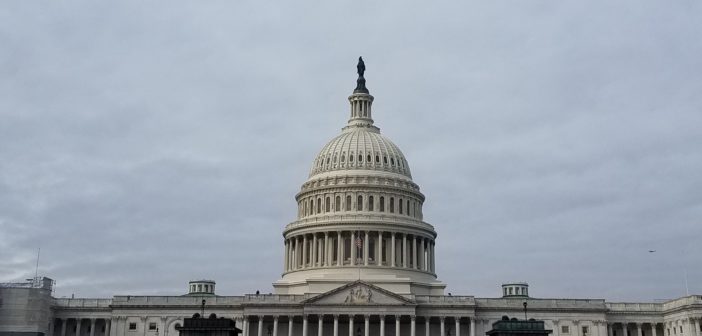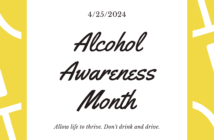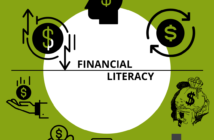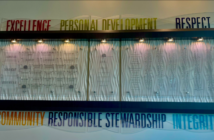By Alora Peters, Editor-in-Chief
The right to freedom of speech—enshrined in the First Amendment of the Bill of Rights—was added to the United States Constitution to quell the fears of the people of being oppressed again by a tyrannical government, explained Frank Orlando, who teaches political science at Saint Leo University.
“If we think back to why the Constitution was passed, it was to give more power to the centralized government after the failure of the Articles of Confederation, which didn’t give the government enough power,” said Orlando. “The Constitution strengthened and empowered the government—people were a little bit worried about it. The Bill of Rights is there to say, ‘We’ll give the government more power, but they can’t touch these things—including free speech.’”
Since the ratification of the Bill of Rights, the right to freedom of speech—and what is protected under this right—continues to be defined by the rulings of the Supreme Court of the United States. Important cases—such as Gitlow v. New York, Brandenburg v. Ohio, and Miller v. California—led to the understanding of free speech that we have today and reveal that not all forms of speech are protected.
Schenck v. United States is one such landmark case, according to Joseph Cillo, who teaches criminal justice and law at Saint Leo.
“In Schenck, the Court ruled that speech that creates a clear and present danger during times of emergency is not protected speech,” said Cillo. “Actions, words, or deeds that are intended or done to incite immediate violence are not protected.”
This especially includes sedition, or the use of violence against the government.
“You can dislike the government,” said Cillo. “But you cannot use speech with the intent of violence against the government and or society. You can’t use ‘humor’ to threaten the life of a president!”
While there are already a number of established restrictions on free speech, in recent times, many have called for increasing restrictions on what should be allowed under the First Amendment.
“Looking at the amount of the public that is in favor of unrestricted speech, it has declined in the United States—especially among younger people,” said Orlando.
This issue is especially relevant in the realm of social media, where owners and platform moderators have begun removing users and content in the name of protecting the public from disinformation and offensive speech.
“Our current media background is unprecedented,” said Orlando. “Today, it is free to say whatever you want, and you have a much further reach.”
The Supreme Court has yet to address a case on whether social media corporations—such as Facebook and Twitter—have the right to block users and censor viewpoints they disagree with on their platforms, but, according to Cillo, it is highly likely that the Court will review in a case in the next few years and rule that this censorship is unconstitutional.
“Facebook and Twitter are private entities, but they are functioning as public forums,” said Cillo. “Since they post comments and opinions in the public square, if they block someone who they don’t agree with the opinion of, they violate the First Amendment.”
Aside from constitutional violations, there are other problems associated with censorship of viewpoints on social media in the name of preventing misinformation.
“How effective would crackdowns be?” asked Orlando. “Who gets to decide what is misinformation or not? Who is objective enough to say this is true, or this is false? It’s very hard to do.”
Classical writers and thinkers on free speech—such as the philosopher John Stuart Mill in his essay On Liberty—have also argued that restricting and censoring speech would be detrimental to society.
“Libertarians, like Mill, took a very positive approach to free speech,” said Orlando. “They thought it necessary for a free and fully-functioning society that speech patterns should not be restricted—even if others found them harmful.”
Mill was also a utilitarianist, which meant that he advocated for policies that would have the highest net happiness for the highest number of people, even at the expense of a few others’ unhappiness.
“For Mill, the utility that you would gain for restricting speech that was harmful or false would be less than the utility that you would gain for allowing speech in its totality,” said Orlando. For a utilitarian, it would have a more positive effect on a society to allow any form of speech, rather than if that society had to constantly police what was permissible or not.
“What is allowed to be said, and what is not allowed to be said—this changes with time and with place,” said Orlando.
Finally, writers like Mill contest that, even if both true and false speech are allowed in the public square, the true speech will still inevitably triumph.
“You might as well just let people say stuff, and let them look silly,” said Orlando. “The best response to something offensive would be a speech in response.”
Unrestricted speech of this nature would allow for an argument to prove its own merit through victories in debate, and would let individuals make logical decisions for themselves.
“You have to allow the people to hear both sides!” said Cillo.
In order to make sound decisions and to discern between right and wrong, individuals need to have a strong, educational foundation.
“Good citizenship is your highest calling, and you will become so by a good education,” said Cillo.
This is far easier said than done, however, as another crucial issue in the debate over free speech is censorship in universities.
“There really isn’t free speech on campuses,” said Orlando. “That type of environment makes things easy for the college administrators, but what kind of citizens emerge from that environment?”
Colleges and schools that attempt to shield students from too much exposure to different types of speech could, in fact, be doing them a disservice.
“By restricting speech, young people have become very sensitive to anything mean or distressing,” said Orlando. “It is not allowing people to develop a defense system for when they are eventually exposed to or attacked with anything harmful.”
It all begs the question: what should students do to better exercise their right to free speech and become better able to differentiate between conflicting viewpoints?
According to Cillo, one of the best things young adults can do to become better informed is to become more involved in the world around them.
“It’s one thing to be electronically savvy. It’s another to be able to interact with other human beings,” he said. “Issues will effect your fellow humans, not your electronics. You need to interact with others.”
In conclusion, students must learn how to listen to differing opinions—including opinions that come into conflict with their own—and how to enter into dialogue with others, rather than simply dismissing them as ignorant or hostile. Similarly, universities and instructors must seek to foster this type of dialogue, and must aim to teach students how to think and ask questions, rather than simply teach students what to think and what questions to avoid.





